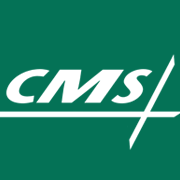CMS Proposes Changes to ACO Medicare Shared Savings Program
CMS says accountable care organizations are successfully delivering high quality, low-cost care. But long-term Medicare Shared Savings Program incentives still need a bit of work.

- The Centers for Medicare & Medicaid Services (CMS) has released a proposed rule to improve performance incentives for accountable care organizations (ACOs) under the Medicare Shared Savings Program.

This proposal builds upon the growth of the Shared Savings Program, says CMS within a press release. The Medicare Shared Savings Program currently includes over 430 ACOs serving more than 7 million Medicare beneficiaries.
CMS's proposal also aims to strengthen overall ACO framework. CMS confirms that ACOs continue to deliver economical, high quality care to Medicare beneficiaries. CMS says the proposal improves long-term ACO incentives.
CMS plans to make some changes and essentially rearrange the benchmarks that determine how well ACOs perform.
"Medicare payments are an important catalyst to improving care delivery, spending our resources smarter and keeping people healthy," said Andy Slavitt, Acting Administrator for CMS.
"This proposal allows ACOs in all parts of the country to be successful by recognizing both their achievements and improvements in how they provide care."
"This should have the effect of growing the number of ACOs, and making ACOs and the coordinated care they provide to patients, more of a standard in all parts of the country."
Weaknesses in quality metrics demand change
Most Medicare Pioneer ACOs that ended up leaving the program went into the Medicare Shared Savings Program or signed up for the Next Generation ACO program, stated Johnathan Niloff, MD, McKesson’s Chief Medical Officer, to RevCycleIntelligence.com.
There are many gaps when it comes to quality metrics, he said. Healthcare organizations are struggling to manage conflicting ACO incentives. A reasonable benchmark methodology, he added, leads to net-risk program success.
“You need a good quality program, specifically to manage your quality metrics and close your gaps in care. Virtually all of the value-based programs have a component of achieving quality metrics as a part of them," Niloff asserted.
“A number of them include achieving certain quality metrics. Managing quality and the appropriate systems and programs in place to meet your quality metrics are always a high priority.”
CMS aims to reset benchmarks
CMS says under the proposed rule, a series of changes will be made to how benchmarks are reset. These benchmarks are used to assess levels of ACO performance for those ACOs renewing their participation agreements.
“The proposed methodology would incorporate factors based on regional fee-for-service expenditures, into establishing and updating the ACO’s rebased historical benchmark, including an adjustment to the benchmark based on regional spending that is phased-in over several agreement periods,” CMS writes.
CMS says there is 60-day comment period available until March 18, 2016.
CMS presents its 4 key proposals:
· Recognizing that health cost trends vary in communities across the country by using regional, rather than national, spending growth trends when establishing and updating an ACO’s rebased benchmark.
· Adjusting an ACO’s rebased benchmark when it enters a second or subsequent agreement period by a percentage (increased over time) of the difference between fee-for-service.
· Spending in the ACO’s regional service area and the ACO’s historical spending, which will provide a greater incentive for continued ACO participation and improvement.
· Giving ACOs time to prepare for benchmarks that incorporate regional expenditures by using a phased-in approach to implementation.
CMS also proposes a series of additional changes. One is to implement a “participation option” to help ease an ACO’s transition from the traditional, fee-for-service realm to a performance-based risk arrangement.
CMS says eligible ACOs under the proposed rule will be able to elect a fourth year under their current initial agreement. They will also hopefully have the option to defer the agreement by one year and enter a second agreement period under the umbrella of a performance-based risk track.
CMS presents another change regarding methodology streamlining when an ACO’s composition changes. CMS additionally says it will make a future effort to more clearly explain the ACO shared savings timeline.
